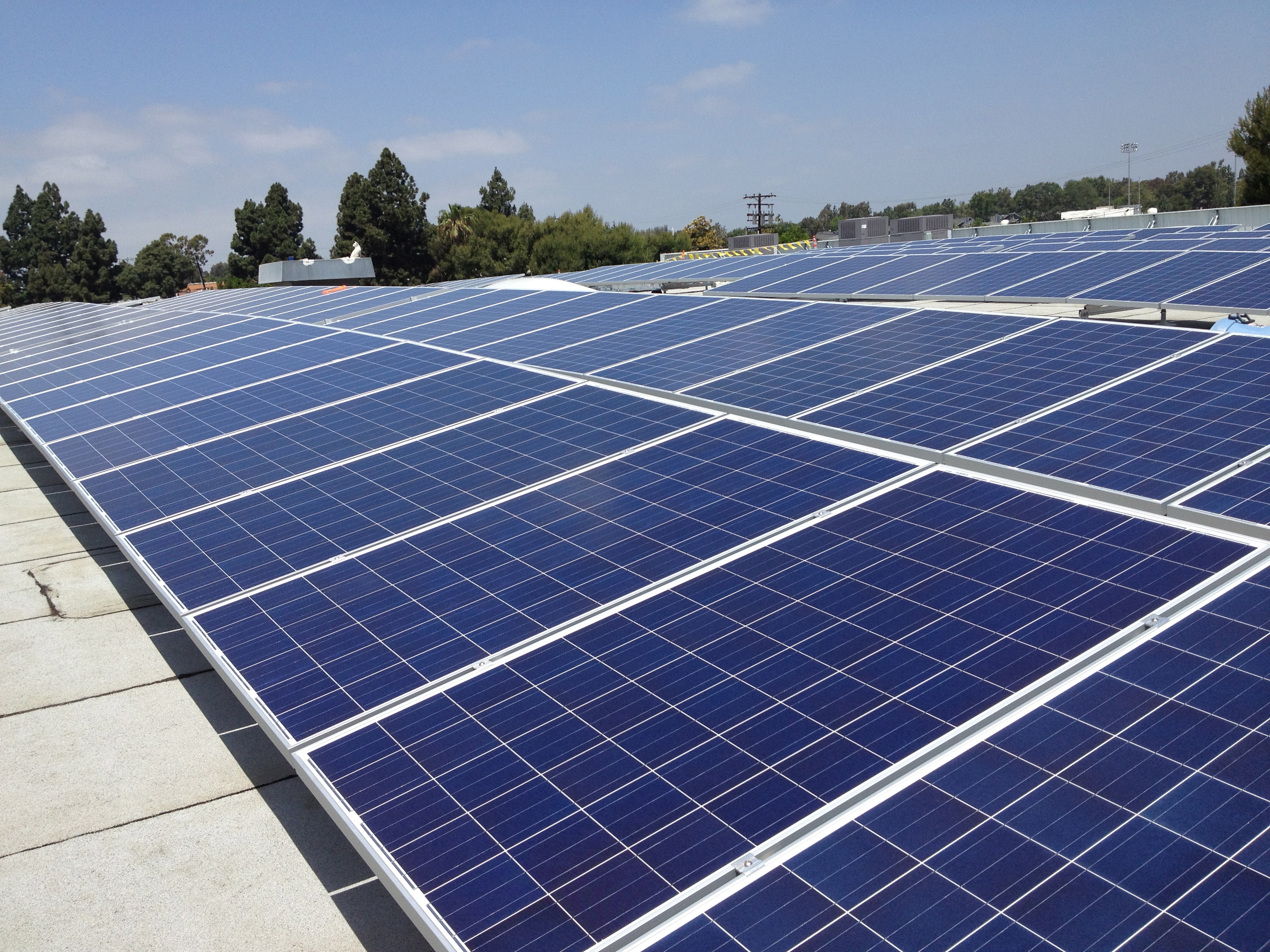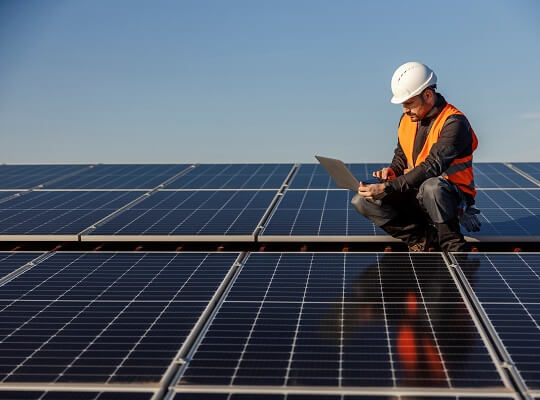Why Solar Panels for Business are a Smart Investment: Long-Term Benefits and Cost Reduction
Why Solar Panels for Business are a Smart Investment: Long-Term Benefits and Cost Reduction
Blog Article
Just How to Choose the Right Solar Energy Setup for Your Power Needs
Choosing a proper solar power installation needs a methodical technique that begins with a clear understanding of your power consumption patterns and expected future requirements. Aspects such as the type of solar innovation, setup costs, and readily available motivations play crucial duties in making an educated choice.
Assess Your Energy Needs
Assessing your power needs is a vital initial step in the solar energy setup process. Comprehending your existing and future power usage will guide the layout of a reliable solar system customized to your demands. Start by analyzing your energy bills from the previous year to identify your average regular monthly energy use, usually measured in kilowatt-hours (kWh) This information will offer a foundation for calculating the dimension of the solar system you might need.
Consider seasonal variants in power intake, as specific months might demand even more power because of home heating or air conditioning demands. In addition, examine any planned modifications in lifestyle or building, such as the purchase of electrical cars or home growths, which might increase your energy needs in the future.
When you have an extensive understanding of your power intake, you can identify the proper solar capability needed to fulfill those needs. This evaluation not just helps in sizing the solar installment however additionally informs decisions regarding power storage space options and potential grid connection demands. solar photovoltaic. Eventually, properly assessing your power requires makes certain that your solar power system operates effectively, delivering the benefits of sustainable power in placement with your consumption patterns

Evaluate Solar Innovation Options
When considering a solar power installment, it is necessary to examine the various solar modern technology alternatives offered to guarantee the system straightens with your energy demands and budget. The main modern technologies include monocrystalline, polycrystalline, and thin-film photovoltaic panels, each offering distinct benefits and disadvantages.
Monocrystalline panels are recognized for their high effectiveness and performance in limited area, making them appropriate for residential installments with much less roofing location. Thin-film solar panels are light-weight and adaptable, perfect for non-traditional surface areas, however they normally have reduced performance and need even more room to produce the same energy output.
Along with panel types, think about solar inverters, which convert the direct current generated by the panels right into rotating existing for home use. String inverters, microinverters, and power optimizers each have distinct benefits that can impact system performance. Evaluating these options will certainly aid you make an enlightened choice that fulfills your energy demands properly.
Take Into Consideration Installment Expenses
Comprehending setup costs is important for any person taking into consideration a solar energy system. These expenses can vary significantly based on a number of aspects, including system dimension, sort of panels, and installation complexity. A typical household solar setup may vary from $15,000 to $30,000 prior to rewards, which can be a substantial upfront investment.
To accurately analyze setup costs, it is important to acquire comprehensive quotes from numerous solar carriers. These quotes ought to break down the expenses of tools, labor, allows, and any kind of additional devices required for the installment. Pay very close attention to the high quality of products being provided, as higher-quality panels and inverters can cause much better efficiency and longevity, possibly offsetting greater initial expenses.
Moreover, think about the long-lasting effects of setup prices. A cheaper installation could save money ahead of time however could result in higher maintenance prices or lowered power production gradually. It is additionally a good idea to assess funding alternatives, such as solar car loans or leases, which can impact your total financial commitment.
Research Resident Incentives
Exploring local motivations can dramatically affect the total cost of a solar power installment. Extra resources Lots of regions provide a variety of economic motivations targeted at promoting renewable resource usage, making solar power a lot more available and budget-friendly for property owners and businesses alike.
These motivations may consist of government tax credit ratings, state discounts, and regional utility business programs that supply cash money incentives or internet metering choices. For example, the Federal Investment Tax Credit History (ITC) allows you to subtract a substantial portion of your solar installation expenses from your federal tax obligations. State-specific rewards can further improve these savings, often in the type of straight cash refunds or tax credit scores.
Furthermore, some city governments may use residential or commercial property tax exceptions for solar setups, guaranteeing that navigate to this website your financial investment does not increase your home tax obligation responsibility. Researching these incentives can uncover considerable cost savings, which can affect your choice on the dimension and kind of solar system to install.

Select a Trusted Installer
Picking a reliable installer is vital to ensuring the success and long life of your solar power try this site system. The installation process substantially influences the efficiency and performance of your solar panels, making it crucial to choose a contractor with a proven track record.
Next, confirm the installer's credentials, including licenses, accreditations, and insurance coverage. A trusted installer needs to hold certifications from recognized organizations, such as the North American Board of Certified Energy Practitioners (NABCEP), suggesting a high degree of experience. In addition, ask about the installer's experience with comparable jobs, particularly in your area, as neighborhood environment and guidelines can affect setup practices.
Request several quotes and contrast them not only on price but also on the top quality of tools and guarantees used. A reliable installer ought to provide clear details regarding their products and solutions, helping you make a notified decision. By investing time in picking a credible installer, you will certainly enhance the total performance and longevity of your solar power system.
Verdict
To conclude, selecting the ideal solar energy installation necessitates a comprehensive assessment of energy demands, an understanding of offered solar modern technologies, and a cautious consideration of installation costs. Investigating local motivations can enhance economic benefits, while choosing a reputable installer ensures high quality craftsmanship and reliability. solar photovoltaic. By carefully evaluating these elements, individuals can accomplish an optimal solar service that satisfies both existing and future power demands, ultimately adding to sustainable energy techniques and cost savings over time
Report this page